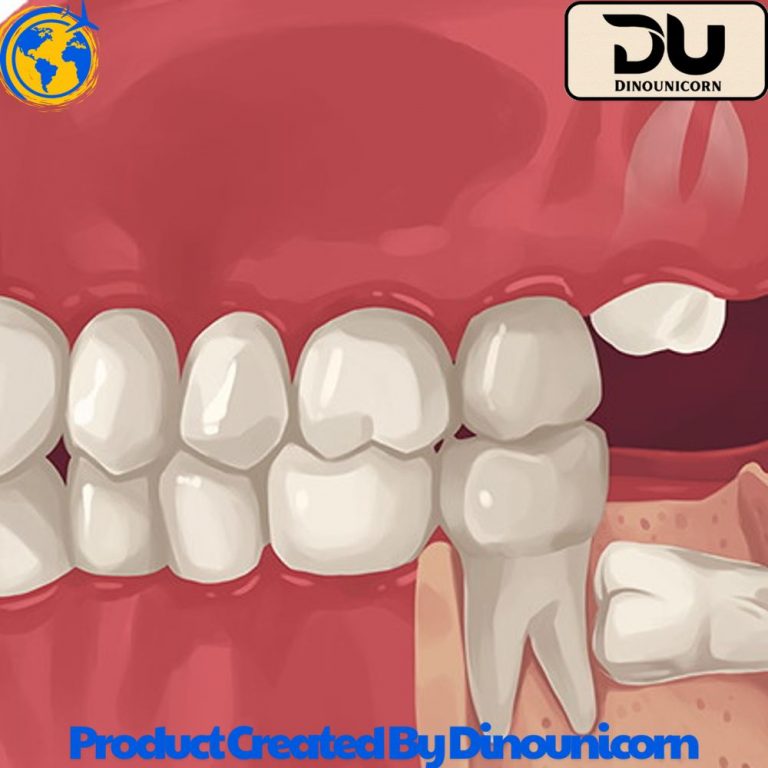Blog
How Much Does Wisdom Teeth Removal Cost?
Introduction: Understanding Wisdom Teeth Removal Costs
Wisdom teeth removal is a common procedure for many people, often performed to avoid complications like infection, overcrowding, and pain. However, before deciding to undergo wisdom teeth removal, it’s essential to understand the cost of the procedure. This article will break down the different factors affecting wisdom teeth removal cost, including average cost, what’s included in the price, and how to save money while ensuring a high-quality procedure.
What Is Wisdom Teeth Removal?
Wisdom teeth are the last set of molars located at the back of your mouth. Typically emerging between the ages of 17 and 25, they often don’t have enough room to grow properly. As a result, they can cause impaction, misalignment, infection, and other dental issues. Wisdom teeth removal is a surgical procedure performed by oral surgeons or general dentists to extract these teeth.
Why Is It Important to Know the Cost of Wisdom Teeth Removal?
Knowing the costs associated with wisdom teeth extraction helps individuals make informed decisions. The average cost can vary significantly depending on factors such as the location, the dentist’s experience, and the complexity of the extraction (simple or surgical extraction). Whether you’re paying out-of-pocket or using dental insurance, understanding what to expect financially can help alleviate any surprises.
How Much Does Wisdom Teeth Removal Cost?
The Average Cost of Wisdom Teeth Removal
The cost of wisdom teeth removal typically ranges from $300 to $1,000 per tooth. The average cost for the entire procedure, which may involve the removal of all four wisdom teeth, is usually between $1,000 and $3,000. Surgical extractions or the removal of impacted wisdom teeth can increase the overall cost.
What Does Wisdom Teeth Removal Cost Include?
When you inquire about the cost of wisdom teeth removal, it’s important to understand what’s included in the total price. The costs generally cover:
- Consultation fees with a dentist or oral surgeon
- Anesthesia or sedation fees (local anesthesia, IV sedation, or general anesthesia)
- Surgical extraction fees for each tooth
- Post-procedure follow-ups and any prescribed medication (painkillers, antibiotics)
What Is the Cost of Wisdom Teeth Surgery?
For more complex procedures, such as bony impaction (where the tooth is embedded within the jawbone), the cost of wisdom teeth surgery can be higher. Depending on the severity of the impaction and the complexity of the surgical extraction, fees may increase. This type of surgery may require a specialized oral surgeon, thus increasing the overall cost.

Factors Affecting the Cost of Wisdom Teeth Removal
Type of Wisdom Teeth Extraction (Simple vs. Surgical)
The type of wisdom teeth extraction you need will play a significant role in determining the overall cost.
- Simple extractions typically cost less, around $150 to $300 per tooth, and are often performed when the wisdom teeth are fully erupted and not impacted.
- Surgical extractions, which involve the removal of impacted wisdom teeth, tend to be more expensive. These extractions may require incisions and stitches, with costs ranging from $500 to $1,000 per tooth, depending on the complexity.
Location and Dentist’s Expertise
The location of your dental provider can influence the cost of wisdom teeth removal. Urban areas with higher costs of living typically have higher extraction costs than rural areas. Additionally, a more experienced oral surgeon or highly reputable dental clinic may charge a premium for their services.
Dental Insurance and Coverage
Using dental insurance can significantly reduce your out-of-pocket cost for wisdom teeth removal. However, coverage varies by provider and plan. For example, Cigna, Humana, and other insurance companies may offer partial or full coverage for the procedure, depending on your plan. In some cases, insurance may cover surgical extractions but not simple extractions, or only a portion of the costs.
Wisdom Teeth Extraction Pricing: What You Need to Know
Wisdom Teeth Removal Surgery Costs: A Breakdown
As previously mentioned, the price of wisdom teeth extraction depends on the type of extraction. For simple procedures, the average cost may fall between $300 and $500 per tooth. If surgery is required for impacted wisdom teeth, expect to pay between $500 and $1,000 per tooth.
In some cases, out-of-pocket costs for wisdom teeth removal can be reduced by using dental insurance, which may cover anesthesia, consultations, and post-surgery medications. However, insurance providers, including Cigna and Humana, may impose limits based on your plan.
How Much Does It Cost Without Insurance?
For those without dental insurance, the cost of wisdom teeth removal is typically higher. Without insurance coverage, the cost of removing wisdom teeth can range from $1,000 to $3,000 for all four teeth. If surgical extractions are needed, extraction costs could increase significantly. Some clinics offer payment plans or financing options to make the procedure more affordable.
How to Save on Wisdom Teeth Removal Costs
Tips for Finding Affordable Wisdom Teeth Removal
Finding an affordable wisdom teeth removal option is crucial, especially if you have limited insurance coverage. Here are a few tips to help you save:
- Compare prices from different oral surgeons and dental clinics in your area.
- Consider teeth removal at dental schools where students perform extractions under the supervision of experienced professionals.
- Look for discounted dental plans or budget-friendly wisdom teeth extraction options offered by clinics.
Using Dental Insurance to Reduce Costs
If you have dental insurance, be sure to check if it covers wisdom teeth removal. Coverage can vary based on your insurance plan and provider. Cigna and Humana, for example, often cover a portion of the costs for surgical extraction or anesthesia, which can lower your out-of-pocket cost.

Conclusion: Making an Informed Decision About Wisdom Teeth Removal
Weighing the Costs vs. Benefits of Wisdom Teeth Removal
While the cost of wisdom teeth removal may seem high, especially for surgical extractions, it’s important to weigh the benefits. Delaying the procedure or avoiding it can lead to more serious complications, such as infection, cysts, or damage to adjacent teeth. The long-term cost of impacted wisdom teeth can be much higher, as complications may require additional surgeries or treatments.
Planning for Wisdom Teeth Extraction Costs
By understanding the factors that affect wisdom teeth removal costs, including the type of procedure and whether you have insurance coverage, you can plan your budget accordingly. Remember to consider both the surgical extraction and post-operative costs when estimating your total expenses.
Frequently Asked Questions (FAQs)
1. How much does wisdom teeth removal cost without insurance?
The cost of wisdom teeth removal without insurance typically ranges from $1,000 to $3,000 for all four teeth, depending on the complexity of the procedure.
2. What factors affect the cost of wisdom teeth extraction?
The costs of wisdom teeth extractions depend on factors like whether the teeth are impacted, the location of the procedure, and the expertise of the oral surgeon. Additional fees for anesthesia and consultations also contribute to the final price.
3. How can I save on wisdom teeth removal?
You can save on wisdom teeth removal by comparing prices, utilizing dental insurance, seeking treatment at dental schools, or considering payment plans offered by clinics.
4. Does dental insurance cover wisdom teeth removal?
Many dental insurance plans, including those from providers like Cigna and Humana, offer partial coverage for wisdom teeth removal. However, the amount of coverage depends on your plan.
5. What is the average cost of wisdom teeth removal?
The average cost for wisdom teeth removal typically falls between $1,000 and $3,000 for all four teeth. Surgical extractions may cost more, depending on the complexity.
This article aims to provide a comprehensive understanding of the costs associated with wisdom teeth removal, helping you make an informed decision. By considering the various factors that affect extraction costs and exploring ways to save, you can ensure that you receive the best care at a price that fits your budget.
 Skip to content
Skip to content

